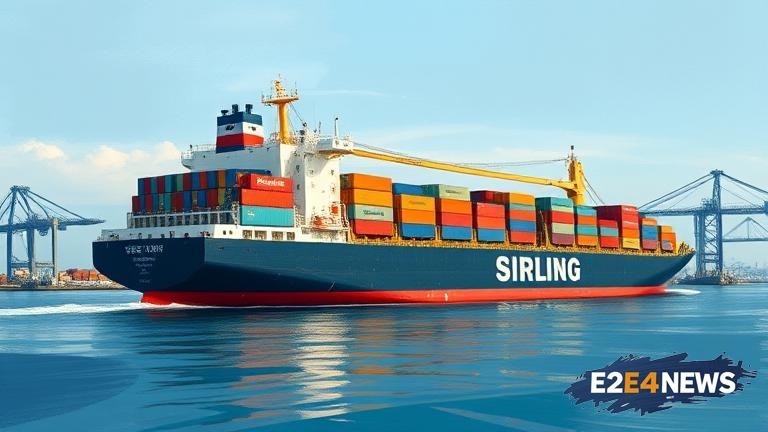The UK government has announced plans to extend the UK Emissions Trading Scheme (UK ETS) to the maritime sector, a move that is expected to have a significant impact on the shipping industry. The UK ETS is a cap-and-trade system that aims to reduce greenhouse gas emissions from various sectors, including power, industry, and aviation. The expansion to the maritime sector is a crucial step towards achieving the UK’s net-zero emissions target by 2050. The maritime sector is a significant contributor to greenhouse gas emissions, accounting for around 2.2% of global emissions. The UK ETS will require shipowners and operators to purchase allowances for each tonne of CO2 emitted, providing a financial incentive to reduce emissions. The scheme will apply to all ships visiting UK ports, regardless of their flag or country of registration. The UK government has set a target of reducing emissions from the maritime sector by 50% by 2030. To achieve this, the government will work with industry stakeholders to develop a range of measures, including improving fuel efficiency, increasing the use of alternative fuels, and promoting the adoption of new technologies. The expansion of the UK ETS to the maritime sector is also expected to have a positive impact on the environment, by reducing air pollution and mitigating the effects of climate change. The UK is not alone in its efforts to reduce emissions from the maritime sector, with the European Union and other countries also implementing similar measures. The International Maritime Organization (IMO) has also set a target of reducing emissions from the maritime sector by 50% by 2050. The UK ETS will be linked to the EU Emissions Trading System (EU ETS), allowing for the mutual recognition of allowances and facilitating trade between the two systems. The expansion of the UK ETS to the maritime sector is a complex process that will require significant investment and effort from industry stakeholders. However, it is also an opportunity for the UK to demonstrate its leadership in reducing emissions and promoting sustainable shipping practices. The UK government has committed to providing support to industry stakeholders, including funding for research and development, and assistance with the implementation of new technologies. The expansion of the UK ETS to the maritime sector is also expected to have a positive impact on the UK economy, by creating new jobs and stimulating investment in the shipping industry. The UK is home to a significant number of shipping companies and ports, and the expansion of the UK ETS is expected to have a positive impact on these businesses. The UK government has also announced plans to establish a new maritime emissions trading system, which will provide a framework for the trading of allowances and the monitoring of emissions. The system will be designed to be flexible and adaptable, allowing for the incorporation of new technologies and fuels as they become available. The expansion of the UK ETS to the maritime sector is a significant step towards reducing emissions from the shipping industry, and demonstrates the UK’s commitment to achieving its net-zero emissions target. The UK government will continue to work with industry stakeholders to develop and implement the UK ETS, and to promote sustainable shipping practices. The expansion of the UK ETS to the maritime sector is a positive development for the environment, and is expected to have a significant impact on the shipping industry. The UK government’s commitment to reducing emissions from the maritime sector is a significant step towards achieving a more sustainable future. The UK ETS will provide a framework for the reduction of emissions from the maritime sector, and will help to promote the adoption of new technologies and fuels. The expansion of the UK ETS to the maritime sector is a complex process, but it is also an opportunity for the UK to demonstrate its leadership in reducing emissions and promoting sustainable shipping practices.
